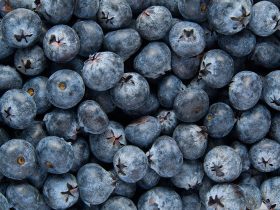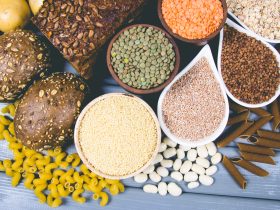In the battle against obesity and overeating, natural appetite suppressants have emerged as a promising ally, offering a holistic approach to weight management without the risks associated with conventional diet pills.
These suppressants, derived from plants, foods, and certain supplements, aim to curb hunger cravings and promote a sense of fullness, ultimately aiding in weight loss efforts.
Understanding Appetite Suppressants
Appetite suppressants encompass a variety of forms, including pills, drinks, supplements, and whole foods. They work by influencing the body’s hunger hormones, such as ghrelin and leptin, which play pivotal roles in regulating appetite.
Ghrelin stimulates appetite, while leptin signals satiety. Natural suppressants help rebalance these hormones, thereby reducing the urge to overeat.
How They Work
Natural appetite suppressants operate through several mechanisms beyond hormonal regulation:
- Thermogenesis: Some suppressants promote thermogenesis, where the body burns stored fat for energy. This process not only aids in weight loss but also enhances metabolic rate.
- Blood Sugar Balance: Certain nutrients and supplements help stabilize blood sugar levels, preventing spikes that can lead to cravings for sugary or high-calorie foods.
- Craving Control: By curbing cravings for unhealthy snacks and sweets, natural suppressants promote healthier eating habits, contributing to sustained weight loss.
- Thyroid Support: Supporting thyroid health is another benefit, as the thyroid gland plays a crucial role in metabolism and energy regulation.
- Mood Enhancement: Some suppressants increase the production of serotonin and other “happy hormones,” improving mood and reducing emotional eating triggered by stress or anxiety.
- Boosting Energy: Providing a natural energy boost, these suppressants can enhance motivation for physical activity, further aiding in weight management.
Key Ingredients
Throughout history, cultures worldwide have utilized various natural ingredients for their appetite-suppressing and metabolic benefits:
- Fiber: Found abundantly in fruits, vegetables, and whole grains, fiber promotes satiety and aids in digestion.
- Healthy Fats: Essential fatty acids from sources like avocados, nuts, and seeds help keep hunger at bay by slowing down digestion.
- Herbs and Spices: Certain herbs and spices such as ginger, cayenne pepper, and green tea extract have thermogenic properties that promote fat burning and suppress appetite.
- Supplements: Including vitamins, minerals (like chromium and magnesium), and herbal supplements (such as Garcinia cambogia and konjac root extract) that support weight loss efforts.
The Role of Diet and Lifestyle
While natural appetite suppressants offer valuable support, achieving sustainable weight loss also hinges on adopting a balanced diet and active lifestyle.
Regular physical activity not only burns calories but also enhances overall well-being and mental clarity.
Coupled with nutritious eating habits that include whole foods and adequate hydration, these practices synergistically support weight management efforts.
Nature’s Appetite Suppressants: 8 Natural Ways to Support Weight Loss
In the quest for effective weight management, natural appetite suppressants offer a safe and holistic approach, leveraging the power of plant-based remedies and dietary strategies.
These suppressants not only help curb cravings but also promote overall well-being without the side effects associated with synthetic options. Here’s a detailed look at eight potent natural appetite suppressants:
- Saffron Extract
Known for its culinary use, saffron extract also offers mood-enhancing properties. By increasing serotonin levels, it helps reduce snacking and emotional eating. Research indicates it can be as effective as low-dose antidepressants in managing symptoms of depression and PMS.
Starting with 30 milligrams daily for about six to eight weeks is recommended, although consulting a healthcare provider is advisable, especially for those with existing conditions affecting serotonin metabolism.
- Green Tea Extract
Green tea has long been celebrated for its health benefits, including its role in weight management. Rich in antioxidants and the bioactive compound EGCG (epigallocatechin gallate), green tea extract supports metabolism and fat burning.
Studies suggest it may reduce ghrelin levels (the hunger hormone), enhance mood, and improve cholesterol profiles. Consuming up to 800–900 milligrams daily, typically through capsules, is generally considered safe for most adults.
- Spicy Foods
Spices such as cayenne, black pepper, turmeric, and ginger not only add flavor but also boost metabolism and suppress appetite. Capsaicin, found in peppers, aids in fat burning and can modulate metabolic activities.
Including these spices in meals or beverages enhances thermogenesis, reduces oxidative stress, and supports overall metabolic health.
- Grapefruit Essential Oil
The invigorating scent of grapefruit essential oil is more than just pleasant – it can also help curb appetite. Studies show it stimulates sympathetic nerves linked to fat metabolism, reduces cravings, and supports balanced blood sugar levels.
Simply inhaling its aroma or using it in a diffuser can help manage appetite and promote healthy eating habits.
- Ketogenic Diet
The ketogenic diet, characterized by high fat intake and very low carb consumption, induces ketosis – a metabolic state where the body burns fat for fuel. Ketosis naturally reduces appetite, particularly for sugary and refined foods.
Combining it with intermittent fasting can further enhance its benefits for weight control and appetite regulation.
If you are vegan, you can follow our Vegan Ketogenic diet guide to help you adapt this healthy diet to your lifestyle and needs.
- High-Fiber Foods and Supplements
Dietary fiber plays a crucial role in satiety and digestive health. Foods like chia seeds, flaxseeds, vegetables, beans, and fruits (especially berries) are rich sources of fiber that absorb water and slow digestion, keeping you full longer.
Aim for at least 30 grams of fiber daily, supplementing with options like psyllium husk or glucomannan if needed to meet your dietary goals.
- High-Protein Diet
Protein is highly satiating and supports muscle maintenance, which is crucial for a healthy metabolism. Foods like lean meats, eggs, beans, and yogurt provide ample protein, reducing ghrelin levels and promoting a feeling of fullness.
Aim for about 30 grams of protein per main meal to optimize its appetite-suppressing effects.
- Regular Eating Schedule
Establishing a consistent eating schedule helps regulate hunger hormones and improves metabolic function. Eating balanced meals at regular intervals – approximately every three to five hours – supports stable blood sugar levels and prevents overeating.
Avoiding late-night eating by finishing meals at least two to three hours before bedtime promotes better metabolic health.
Risks Associated with Diet Pills
Diet pills are often marketed as a convenient solution for weight loss, claiming to curb appetite and boost metabolism. While some formulations can dull hunger, many are unsafe and come with significant side effects.
Commercial diet pills typically contain a blend of stimulants, including caffeine, herbs, digestive enzymes, or acids. These ingredients can lead to adverse reactions such as anxiety, indigestion, jitteriness, headaches, insomnia, heart palpitations, and diarrhea.
High amounts of caffeine, a common ingredient, can cause strong side effects, especially when consumed in large quantities within a short period.
Appetite-suppressing weight loss products are considered risky for several reasons. Stimulants in these pills can cause adverse reactions and possible medication interactions.
Some products may contain tainted or unlisted ingredients, high levels of caffeine, and fillers or synthetic additives that trigger negative reactions. These dangers highlight the need for caution when considering diet pills for weight loss.
Certain thermogenic supplements, especially those containing ephedrine (ephedra), have been linked to severe health risks, including acute liver failure, excessive bleeding, increased pressure in the brain, fatigue, malaise, and jaundice.
Due to these risks, ephedrine is now banned as a dietary supplement ingredient in the U.S. These severe reactions underscore the importance of avoiding certain diet pills.
Natural Appetite Suppressant Alternatives
Instead of relying on diet pills, consider natural ways to suppress appetite. Avoid fad diets and severe calorie restriction, which can slow metabolism and increase hunger. Consume omega-3 fatty acids and probiotics for reduced inflammation and better gut health.
Stay hydrated with water and other hydrating drinks like herbal teas and unsweetened coconut water. Manage stress to curb emotional eating and practice mindful eating for better meal satisfaction. Opt for dark chocolate with a high cacao percentage to satisfy sweet cravings without too much sugar.
Ensure adequate sleep to support normal hormone production and prevent overeating. Avoid overtraining, which can increase hunger and fatigue, and treat underlying health conditions that may affect metabolism.
Potential Risks and Side Effects of Natural Suppressants
Even natural appetite suppressants can carry risks and side effects. Pay attention to how your body responds to new herbs or supplements, and follow dosage directions carefully to avoid dangerous reactions like poisoning, vomiting, dizziness, diarrhea, and heart problems.
Pregnant or breastfeeding women, children, and the elderly should generally avoid using appetite suppressants without medical advice.
Those with health conditions such as heart problems, mental health issues, dizziness, vertigo, or allergies should consult a healthcare professional before using appetite suppressants.
















Find Us on Socials